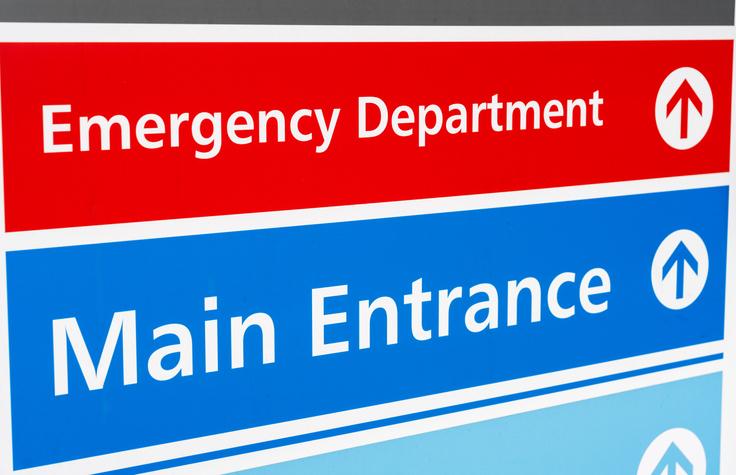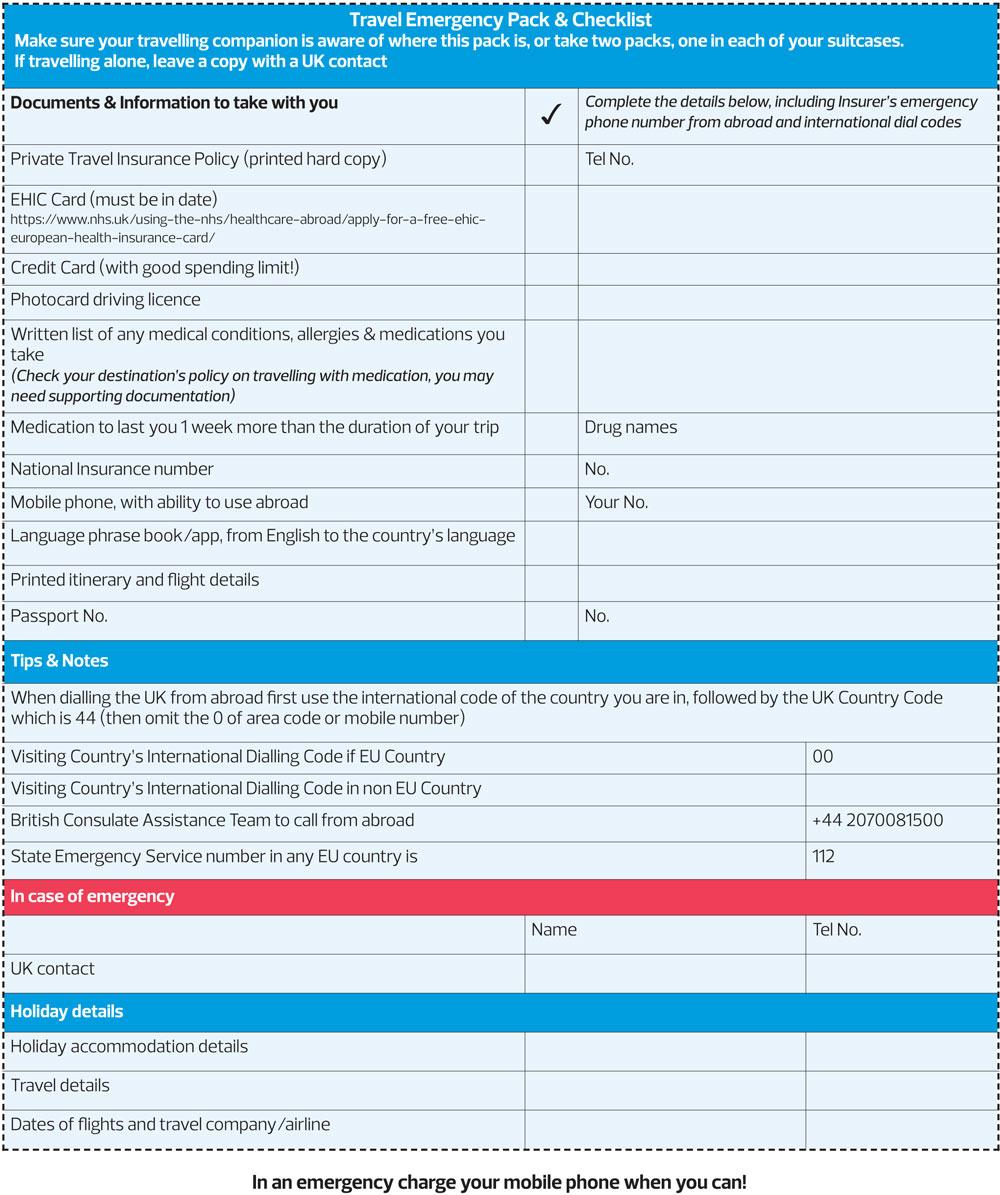
Accidents abroad – a salutary tale
Claire Winchester
Claire Winchester
Admin & Finance Officer, Somerset LMC
Any kind of health emergency abroad can present significant difficulties for the traveller, not least in communication in a foreign language and dealing with an unfamiliar health care system. This case study illustrates what can go wrong and how the traveller can best prepare for the unexpected
Globally, falls are a major public health problem. The World Health Organization1 states that falls are the second leading cause of accidental or unintentional injury deaths worldwide, and each year an estimated 646,000 individuals die from falls.So the problem is significant, but when an accident happens to a traveller in a country where the language and healthcare facilities are different, it can be extremely challenging and stressful. The following case study shows the impact an accident can have both on the traveller and his companions, and illustrates not only the importance of taking out insurance which includes medical repatriation, but of the need to keep all necessary information to hand. A form which can be used for your travellers to keep such details is also included.
THE ACCIDENT
In 2017, a group of six friends took a short break to Majorca. On the first night they all enjoyed a meal, before retiring to their rooms. There was a large marble staircase leading up from the restaurant, and upon leaving, one of the friends, Michael (aged 50) caught his foot on the step then fell straight backwards, hitting his head so hard on the marble floor at the bottom that he lost consciousness. His companions found him unresponsive, with very shallow breathing that initially was difficult to detect. He had suffered a myocardial infarction only a few months prior to this holiday, and understandably, his partner was distraught.
The hotel called an ambulance, which arrived very quickly. The doctor on the scene explained Michael would need to go to hospital, but insisted on being paid before the ambulance departed so the group had to scrabble around to find enough money. The ambulance was a private service and transported Michael to a private hospital where he was diagnosed with a cerebral haemorrhage. These services were not covered by the EHIC provision so on arrival, there was an urgent request for the full paper copy of the travel insurance. Michael’s partner only had access to the policy online, via her mobile phone, but she had no signal and couldn’t access it. Neither did she have a credit card and the hospital refused to commence any treatment until guarantee of payment was provided. Fortunately another member of the group was able to offer a credit card, and this satisfied the hospital. Eventually, the group accessed the insurance policy from a hospital computer, and was able to print it out. It stated that Michael was not covered for any ongoing treatment at a private hospital, but the insurer did agree to pay the £3,500 bill that had already been accrued. However, no further treatment could be undertaken at the private hospital without full payment.
None of the group was aware at first that the services Michael received were being provided privately and it was just fortunate that they could manage to pay for the treatment at the time. Questions asked on Michael’s initial admission included information about his current medication, his National Insurance number (which his partner didn’t have), and numerous enquiries about the travel insurance which required several calls to the insurance company, further complicated by the fact that connection was difficult via mobile phone, international codes didn’t work automatically and the signal was poor.
COMMUNICATION ISSUES
It was decided to transfer Michael to a larger hospital in Palma, about an hour away. Michael’s partner and another member of the group followed on in a taxi in the early hours of the morning. Michael was admitted to the intensive care unit. Communication was very difficult as neither of them spoke much Spanish, the staff not much English, and stress levels were very high. Fortunately they had had the presence of mind to charge their phones at the hotel while they were getting things together, as without them it would have been even more difficult – they used a translation facility, which helped a little. The next four days were spent driving a hire car back and forth to the hospital, driven by the only member of the group to have their driving license with him, a round trip of 70 miles each day.
The hospital did have a translator but she never seemed to be around when doctors visited, so it was very hard to find out what was happening. It was a daily struggle to find out some information that had been requested or fill out forms, which was very difficult with the language barrier. Finally, the couple were repatriated on a medically assisted flight five days later, but the day after returning Michael suffered a large stroke. Thankfully, he made a reasonable recovery after several weeks in hospital, then a few months of rehabilitation at home.
The whole experience was truly frightening and an object lesson in the need to prepare for unexpected emergencies. When faced with a crisis, one isn’t always thinking clearly, and it is understandable that panic sets in.
When a trip is booked via a travel agent with a holiday representative in place at the destination, there is a degree of added support but so many bookings are now made independently, and there needs to be greater awareness of the risks.
To help travellers, the author designed this list of all the information that would have been useful to have at hand. Having this completed checklist both as hard copy and stored on a mobile would have significantly reduced stress and anxiety in the event of any accident or medical emergency abroad.
- A version of the checklist is available at https://www.somersetlmc.co.uk/travelemergencychecklist
Reference
1. World Health Organization. Falls, 2018 https://www.who.int/en/news-room/fact-sheets/detail/falls
Related articles
View all Articles
